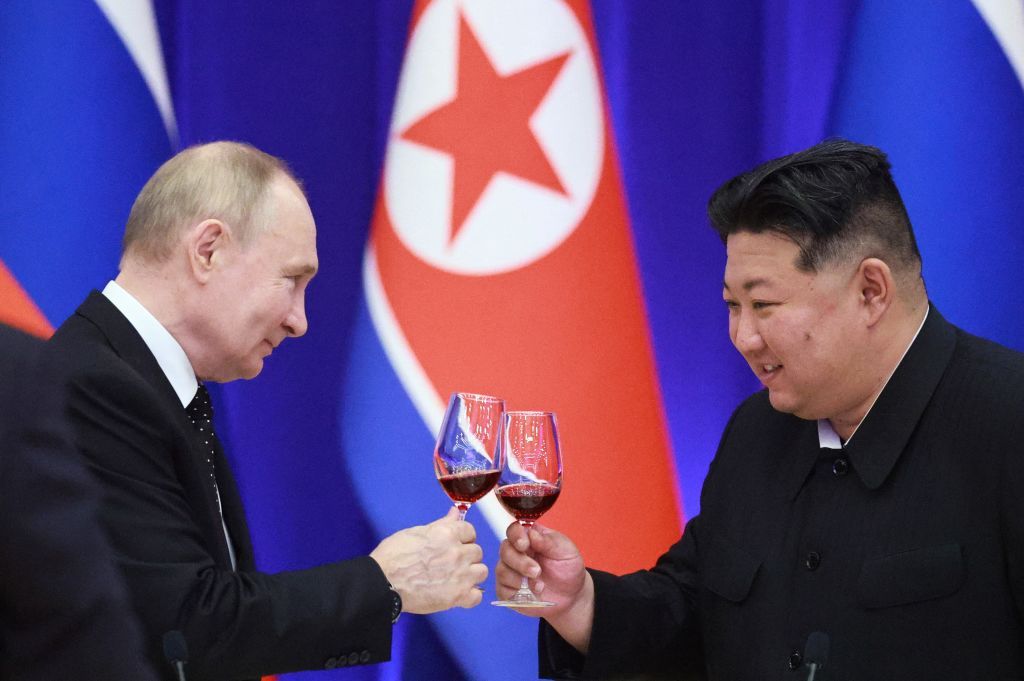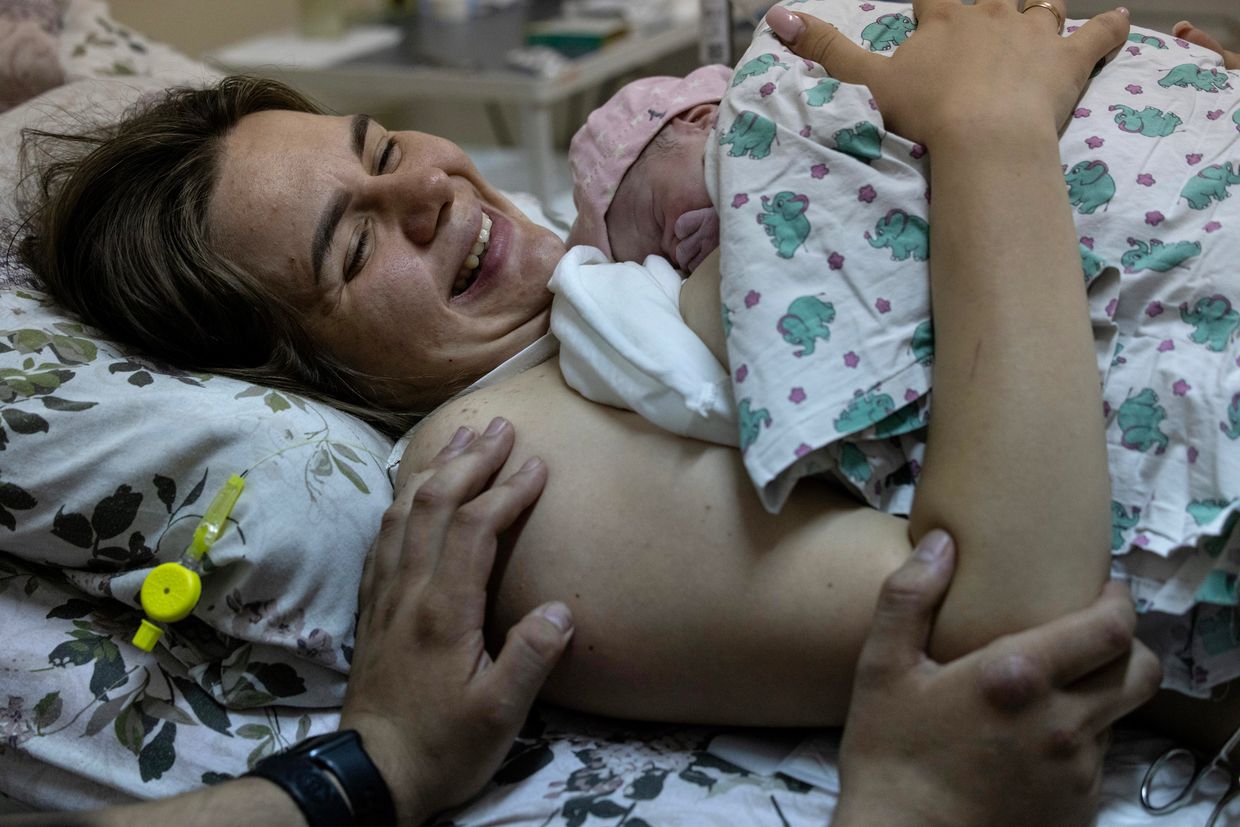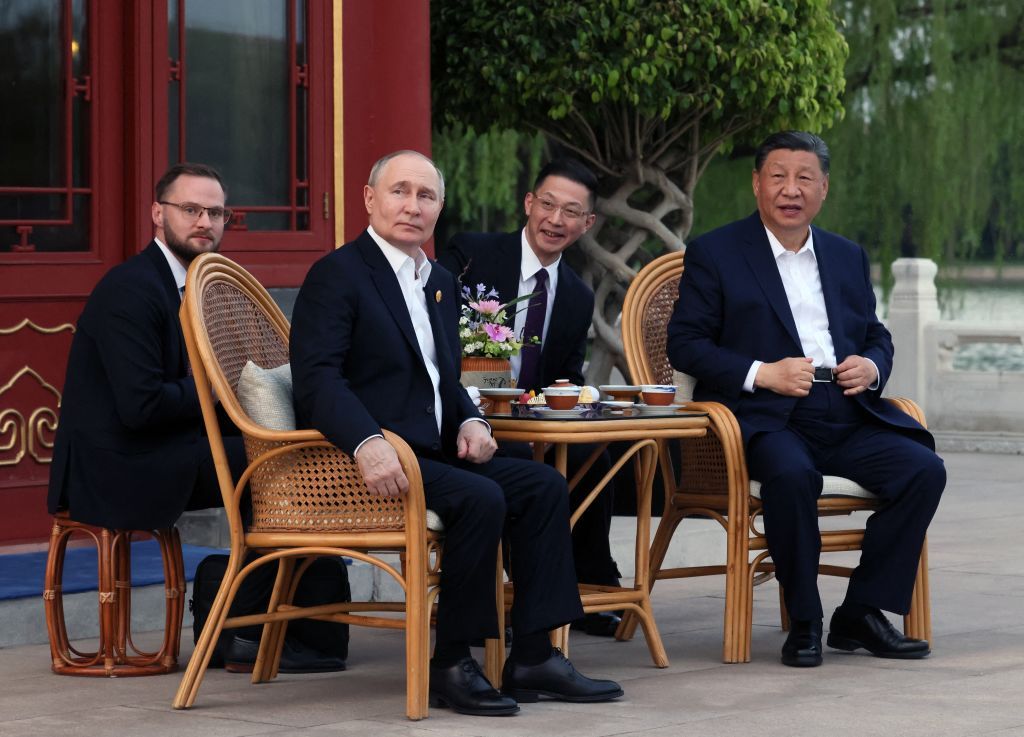Opinion: The EU needs to shift focus as war returns to Europe
Faced with the task of maneuvering between Russia, China, domestic populists, and possibly another Trump administration, EU leaders have their work cut out for them.

Italian Prime Minister Mario Draghi (L) and French President Emmanuel Macron (C) attend a visit with German Chancellor Olaf Scholz (unseen) in Irpin, Ukraine, on June 16, 2022. (Ludovic Marin/POOL/AFP via Getty Images)

Carl Bildt
Former prime minister of Sweden
Now that voters across the European Union’s 27 member states have elected the 720 members of the next European Parliament, the focus shifts to manning the institutions that will guide the bloc’s work and set its strategic priorities over the next five years. This process will take some time. But by the end of the year – following all the predictable parliamentary haggling and turmoil – it should be complete.
All told, the shift in the political balance within the European Parliament was not as dramatic as many commentators expected. The share of seats held by traditional center-right, center-left, and liberal parties fell only from 59% to 56%. Most of the drama was confined to a few countries, not least France, where Marine Le Pen’s National Rally trounced President Emmanuel Macron’s Renaissance party. Though that outcome will not immediately affect the process of staffing EU institutions, a political sea change in one of the bloc’s key members obviously could have a greater impact over time.
Looking back on the past five years, it is fair to say that the EU has outperformed expectations. It might not have transformed itself into the geopolitical power that European Commission President Ursula von der Leyen envisioned in so many speeches, but it has proven to be an effective crisis manager through one “black swan” crisis after another (from the COVID-19 pandemic to Russia’s invasion of Ukraine).
The road ahead may be even more challenging. A big question mark hovers over France as it holds a snap parliamentary election this month and a presidential election in 2027. Germany’s three-party coalition government will probably stumble on, despite its members’ poor showing in the European election. And it remains to be seen what kind of internal resistance the EU will face from the governments in Hungary, Slovakia, the Netherlands, and perhaps Austria (following its general election this fall).
Even without potential spoilers, the EU’s political agenda would be daunting. The EU got off to a good start on the green transition over the past decade, establishing itself as a global leader on climate issues; but domestic political pressures in many member states are now forcing policymakers to proceed more slowly. Meanwhile, its digital transition has been less impressive – a shortcoming that stands out even more as the age of artificial intelligence transforms the global economy.
European leaders are only gradually waking up to the fact that the EU has a competitiveness problem. In a world where the United States is the innovation superpower and China is the production superpower, being a regulatory superpower is not enough.
How Europe tackles this issue will fundamentally shape its future. Many are calling for new tariffs, subsidies, and expensive industrial policies, often under the pretext of economic and national security. But such proposals sidestep the real issues. Until Europe completes its single market and establishes a true capital union, European entrepreneurs will struggle to commercialize new innovations, and global investors will continue to favor the US and other markets.
These issues have grown more urgent with the return of war to the continent. Preserving peace and stability is the reason the EU was created in the first place.
Born in the ashes of World War II, it has been extraordinarily successful so far. But Russia’s brutal war of aggression against Ukraine poses a direct challenge to the European project. If it is not met head-on, the entire European order could unravel in the coming years.
Preventing that outcome will require the EU to transform itself into a security union, in partnership with NATO, and to move ahead with enlargement to include Ukraine. The choice here is quite simple: Either we extend our stability eastward, or Russia will continue to push its project of destabilization westward.
The discussions on EU leadership, personnel, and priorities over the coming weeks and months will be about preparing the bloc to meet these challenges. The EU has shown itself to be an effective crisis manager, but now it must become a major strategic player in an increasingly difficult global environment. As if the Russian threat wasn’t bad enough already, it will become even more acute if Donald Trump wins the U.S. presidential election in November. A U.S. administration that openly abandons allies and dismantles or defangs key pillars of the international order – including the World Trade Organization, the World Health Organization, global climate agreements, and NATO – will pose an altogether different and greater challenge.
Faced with the task of maneuvering between Russian President Vladimir Putin, Chinese President Xi Jinping, a second Trump administration, and its own populists, the EU’s situation is not going to get any easier. But Europe is not helpless. The more EU member states unify around shared institutions and common goals, the more secure they will be.
Editor’s Note: Copyright, Project Syndicate. This article was published by Project Syndicate on June 21, 2024, and has been republished by the Kyiv Independent with permission.The opinions expressed in the op-ed section are those of the authors and do not purport to reflect the views of the Kyiv Independent.












